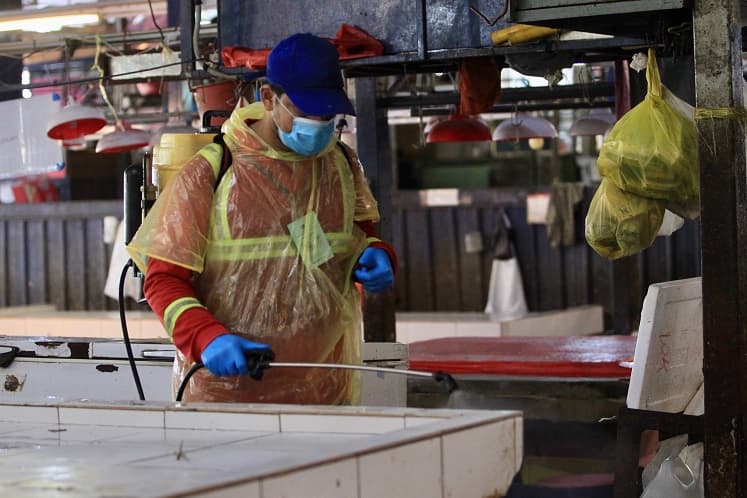
KUALA LUMPUR (April 29): The government will ease restrictions under the movement control order (MCO) for the economic sectors first before considering lifting the lockdown for other services such as social and education, said health director-general (DG) Datuk Dr Noor Hisham Abdullah.
He said the Ministry of Health (MoH) will observe the development of the Covid-19 outbreak, following the reopening of the economic sectors, before proposing the reopening of other sectors.
"The MoH suggested that we start [by reopening] the economic sectors first. The social and education sectors will be delayed a bit.
“We will monitor the situation within two weeks or even four weeks before we can actually propose for the social and education sectors to be reopened," he said in his daily press briefing on the Covid-19 situation today.
Noor Hisham said this when asked about the ministry’s stand on reopening schools soon following a decline in the number of new Covid-19 cases over the past week.
Noor Hisham said that even with the easing of the MCO restrictions, it is important for everyone to follow the guiding principles provided by the MoH to prevent any surge in new cases.
"We are looking into the terms of easing the MCO but they have to follow the guiding principles of the MoH.
“We have actually provided the guiding principles and now we are in the process of looking into the SOP (standard operating procedure) for every sector to be considered. And I think an announcement will be made soon," he added.
The Ministry of International Trade and Industry (MITI) yesterday announced that businesses that had been allowed to undergo restricted operations during the MCO can operate with a full workforce without limitations on operating hours in the fourth phase of the MCO beginning today.
Since the implementation of the MCO on March 18, businesses that have been allowed to operate included essential services and manufacturers of critical products. The list was expanded in mid-April to include certain non-essential sectors.
As at April 15, the essential services included water, energy, and security and defence. Other services in the list were solid waste and public cleansing management and sewerage; communications and the Internet; banking and finance; e-commerce; transportation, port and airport services; fuel and lubricants; logistics confined to the provision of essential services; and hotels and accommodations.
Critical product manufacturing includes the manufacturing and importing of staple foodstuff such as rice, sugar, bread, agriculture and fisheries, home goods and products such as detergents and disinfectants, personal protective equipment, pharmaceuticals, packaging and printing materials including ink, medical and surgical devices, as well as the manufacturing of parts of medical devices such as ventilators.
Stay at home. We will deliver the news to you at theedgemarkets.com.